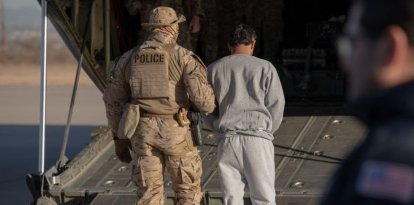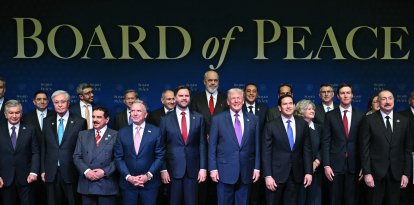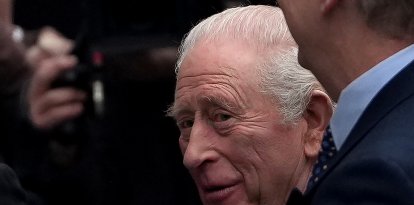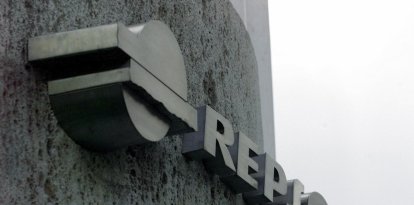"Don't mess with us": Retired Mossad agents explain how 'Operation Beeper' went in Lebanon and Syria
Phantom companies, tests on mannequins, sophisticated marketing and even a showroom. In statements for the CBS program “60 Minutes,” agents explained in detail how the mission, which began a decade ago and marked a turning point in the conflict, was carried out.

The remains of some 'beepers' that exploded in Lebanon.
Recently retired agents of the Israeli intelligence service Mossad explained on CBS's 60 Minutes how they executed a mission in which thousands of beepers and walkie talkies belonging to members of the Lebanese terrorist group Hezbollah were detonated. The operation was referred to as "Operation Beeper."
The agents, who reportedly led the surprise and complex mission and spoke with hooded faces and distorted voices, revealed that the operation began a decade ago.
In total, the explosions of beepers and walkie-talkies, which took place in Lebanon and Syria last September, resulted in around 30 deaths and left approximately 3,000 injured. As noted by 60 Minutes reported that the operation effectively incapacitated one-fifth of Hezbollah's members.
Initially, the agents claimed that they sold thousands of walkie talkies, and then beepers, to Hezbollah. All of them contained concealed explosives.
One of the agents, who was introduced under the fictitious name of Michael, claimed that the terrorist organization bought 16,000 walkie talkies manufactured by the Mossad at a cheap price, though not too much so as not to arouse suspicion.
Phantom companies, tests on dummies, sophisticated marketing and even a showroom
In total, the explosions of beepers and walkie-talkies, which took place in Lebanon and Syria last September, resulted in around 30 deaths and left approximately 3,000 injured. As noted by 60 Minutes, the operation effectively incapacitated one-fifth of Hezbollah's members.
However, the Mossad later discovered that Hezbollah had begun to drop the walkie talkies and acquire beepers from a Taiwanese company called Gold Apollo, and carried out the same procedure in order to place the explosives in those devices.
The Taiwanese company, of course, was not aware that the devices contained the explosives.
The agents indicated that the Mossad hired Gold Apollo's marketing director to offer Hezbollah an upgrade to its devices. They added that everything appeared to be legitimate, as there were businessmen, engineers, marketing experts and even a showroom.
One of the agents argued that the Mossad has a huge range of options for setting up foreign companies that cannot be linked to Israel.
By September 2024, Hezbollah had already acquired around 5,000 beepers.
Israeli agents said that they even made YouTube ads showing the devices submerged in water or covered in dirt to demonstrate their resistance.
The interviewees further noted that the goal was to cause harm only to Hezbollah terrorists, so the devices were tested on dummies to determine the exact amount of explosives that would only generate wounds on the wearer.
The Mossad also tested various ring tones for the beepers and measured the average time it took for a person to answer: 7 seconds.
A turning point in the conflict
According to the agents, because Hezbollah had become suspicious of the devices, Mossad chief David Barnea gave the order to carry out the mission on Sept. 17.
The agents stated that the operation signified a turning point in the conflict, and that from that moment on Hezbollah had lost the war. They added that Hassan Nasrallah, the leader of the terrorist group killed by Israel last September 27, saw how some of the members of the Islamist organization who were with him in the bunker fell wounded when their beepers exploded.
Gabriel stated that the fact that there are now terrorists roaming Lebanon without hands or eyes is proof of Israel's superiority in the Middle East. "Don't mess with us," he warned to his country's enemies.
Michael said that he hopes the situation in Lebanon will influence Hamas to release the hostages still being held by the Palestinian terrorist group in the Gaza Strip.
It should be noted that Israel has not officially claimed responsibility for the operation.

























